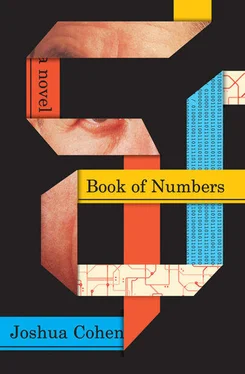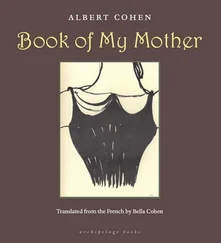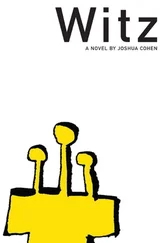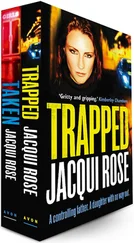I was the only NYer not allowed to be sad, once it came out what I was sad about, the bathroom was common and down the hall, all my sustenance was from the deli.
I bought a turkey sandwich, cheese curls, frosted donuts, lotto scratchers, Cossack vodka I’d drink without ice, from the spare change trough emptied and unwashed, Camel Lights I’d smoke out in the hall through the bars of the airshaft, smoking so hard as to crack a rib.
That’s what I bought — representatively, each day — but also exactly, precisely, the day I spent the last of my advance. Summer 2002.
No further monies would be earned from my book — from all that labor. My advance was now behind me.
I tried to write something else — tried some stories (Hasidic tales recast), translations (from the Hebrew). But nothing — I was wasted, blocked, cramped blank by my “mogigraphia,” “graphospasms.” Translation: spending all my time online, blotted in a cell glutted with paper. I became a cursor, a caret, a button pressed and pressing — refreshing reactions to Cal’s work.
Then, with the anniversary approaching, the Times got in touch. An editor emailed to ask if I’d write an “article,” a “piece,” about my luck. For the Sunday Styles section. I opened and closed her email for weeks, for months after the close of that summer, until rent was due, utilities too, and then I answered. I didn’t just write back in the affirmative, I wrote the thing itself, which was shocking. After being so incapable, so incapable of wording, to spew out what I spewed — all bodytext, no attachments — I was shocked.
Because I sent it out and received an immediate rejection. I wasn’t timely anymore. But I could still read between the lines. My tone had been too charged, my rhetoric too raging.
The editor, however, either pitying or gracious, passed me along to the Sunday Book Review, which offered me its font (Imperial) — if I could contain myself, be selfless, mature. My initial assignment was a book about the events — not as they affected me, but as they affected everyone (else).
Though I’ve since forgotten everything about the book — its title, its author, but that’s only because they’re online — I do recall the work: being mortified by it, and enjoying it. Enjoying my mortification. The clippings collected. My precocious ghosts, paper creased yellow. “Edifice Rex.” “Rubble Entendre.”
I became a legit critic, one of the clerisy, the tribe that had ignored me — and it was all because I’d been ignored that I was fair, accurate, pretentious. I always went after the feinschmecker stuff. Wolpe at Carnegie Hall (centennial of his birth), Whistler at the Frick (centennial of his death). The Atlantic, The Nation . Though my assignments were usually kept to Jewish books, to be defined as books not just about Jews but by them. The Holocaust Industry: Reflections on the Exploitation of Jewish Suffering, American Judaism: A History —for The New Republic a novel called The Oracle or The Oracle’s Wife set entirely in Christian New Amsterdam but written by a woman called Krauss — I wrote Edward Saïd’s obituary for Harper’s .
I explained, explicated, expounded — Mr. Pronunciamento, a taste arbiteur and approviste, dispensing consensus, and expensing it too: on new frontiers in race and the genetics of intelligence (Rabbi Moshe Teitelbaum and heterozygote fitness), on new challenges to linguistics (connectionist vs. Chomskyan), circumcision and STDs (“Cut Men, Not Budget”), manufacturing jobs shipped overseas and other, related, proxies for torture (“Contracting Abroad: Black Boxes and Black Sites”). All for casual readers who specialized in nothing but despecialization, familiarity. They didn’t want to know it, they just wanted to know about it. Culture justified by cultural calendaring: the times and addresses and price.
But then, a break.
A site was about to launch — a bright blue text/bright white background site that if it wasn’t defunct would be ridiculous now, but it wasn’t then — in NY urls were still being typed and discussed with their wwws. It was amply backed by old media, amply staffed by new media, and was to be given away for free — its publication was its publicity — www.itseemedimportantatthetime.com, believe me.
They emailed with a Q: Would I like to interview Joshua Cohen?
My A: Why not?
But not this type of Q&A — instead, a profile, though they wanted only 2,000 words. They had infinite room, eternal room, margins beyond any binding or mind, and yet: they wanted only 2,000 words (still, @ $1/word).
It was a gimmick — everything is, and if it isn’t, that’s its gimmick — and yet, I accepted, I had to, I had to meet myself.
Joshua Cohen — Principal, but not yet mine — would be in NY for only a minimized window. I was instructed to meet him at Tetration’s HQ, at some strange time, some psychoanalyst’s 10 or so intersessionary minutes before or after the hour. In the lobby, in a waterfront fringe of Chelsea being rezoned for lobbies. They’d just gone public, at $80/share, for a market capitalization in excess of $22B.
My first reaction was, this was a railshed of reshunted freight that coincidentally included office furniture — Tetration was still moving in. I entered as the gratis vendingmachines were being installed, empty, gratis but empty. They’d purchased the railshed before Cohen had even toured it, apparently. This would be a first for us both.
The meet & greeter’s badge wasn’t brass but a brasscolored sticker on his vneck, below which were black slacker jeans, holstered taser. He smirked at my license, summoned an elongated attenuated marfanoid flunky to take me up, but instead of elevators or escalators or stairs, we took the ladders, rope ladders, rigging. An obstacle course of rainbowbanded enmeshments. We scuttled past androids fumbling to hook up their workstations, arraying plushtoys, wire/string disentanglement puzzles, tangrams, rubikses, möbiuses, slinkies.
The conference room was massive and vacant and carpet interrupted by tapemarks. The flunky left and rolled back with a chair and positioned its casters over the tapemarks and to keep the chair from rolling away chocked the casters with lunchboxsized laptops, left finally.
The ceiling panels were black and white, a chessboard defying gravity with magnetized pieces in an opening gambit of  f3 d5, g3
f3 d5, g3  g4, b3
g4, b3  d7,
d7,  b2 e6. The wallpaper, a cohelixing of the DNA of Tetration’s founders, a physical model of their alliance — or, just design.
b2 e6. The wallpaper, a cohelixing of the DNA of Tetration’s founders, a physical model of their alliance — or, just design.
Portals, portholes, had a vista over a plaza whose rubberized T tiles were proof of the four color map theorem, and stacked cargo containers and bollards being retrofit for a children’s playground. The pier of my bookparty was just beyond, but which it was, I wasn’t sure, as all the piers were becoming trussed in steel or repurposed into monocoques of electrochromic smartglass, available for weddings, and bar and bat mitzvot.
Our fleshtime: Principal entered, and the one chair was for him because he sat in it and I was still standing but all was otherwise similar between us.
“How’s it treating you, NY?” I said.
“Banging, slamming,” yawning.
“Not tubular?”
“Whatever the thing to say is, write it.”
“I take it you don’t have a great opinion of the press?”
“The same questions are always asked: Power color? HTML White, #FFFFFF. Favorite food? Antioxidants. Favorite drink? Yuen yeung, kefir, feni lassi, kombucha. Preferred way to relax? Going around NY lying to journalists about ever having time to relax. They have become unavoidable. The questions, the answers, the journalists. But it is not the lying we hate. We hate anything unavoidable.”
Читать дальше

 f3 d5, g3
f3 d5, g3  g4, b3
g4, b3  d7,
d7,  b2 e6. The wallpaper, a cohelixing of the DNA of Tetration’s founders, a physical model of their alliance — or, just design.
b2 e6. The wallpaper, a cohelixing of the DNA of Tetration’s founders, a physical model of their alliance — or, just design.










